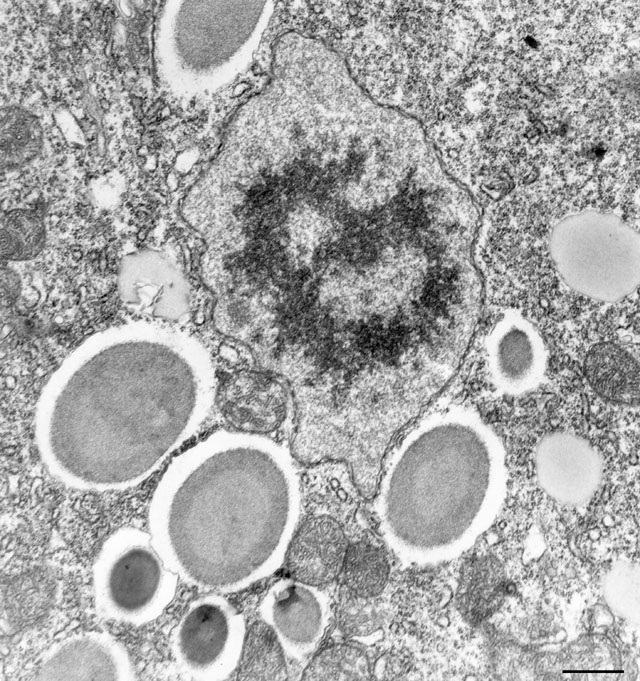|
Like other ciliates P. multimicronucleatum has two
morphologically and functionally different nuclei. Shown here is the
tiny micronucleus, of which there are four, during interphase of this
cell. This nucleus has the task of dividing the nuclear genome between
the two daughter cells during mitosis and in forming the two haploid
pronuclei one of which will be exchanged with a partner cell during
conjugation. However, during interphase this nucleus is not involved
in forming ribosomes or messenger RNA so it does not control the
metabolic processes of the cell. This micronucleus, much smaller than
in other paramecia such as P. caudatum, has a central condensed
mass of chromatin surrounded by a less dense nucleoplasm. This is
known as a vesicular type of micronucleus. There is a typical nuclear
envelope with numerous pores limiting this organelle. This
micronucleus was from a cell in day 5 of a culture age study where
cells are in mid-log phase of growth. The cell is presumably
undergoing rapid metabolism. EM taken on 5/29/78 by R. Allen with
Hitachi HU11A TEM. Neg. 12,250X. Bar = 0.5µm.
|
